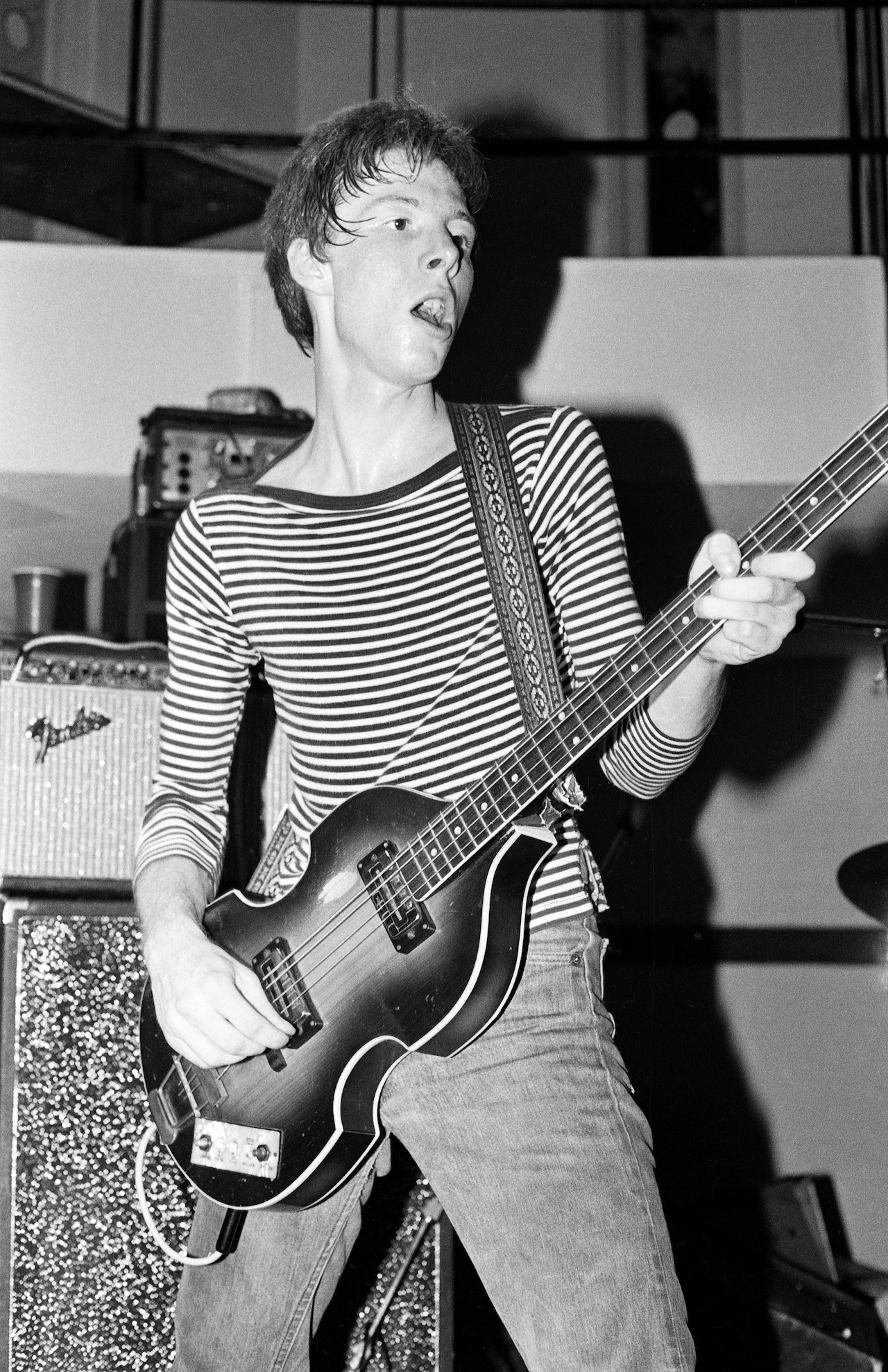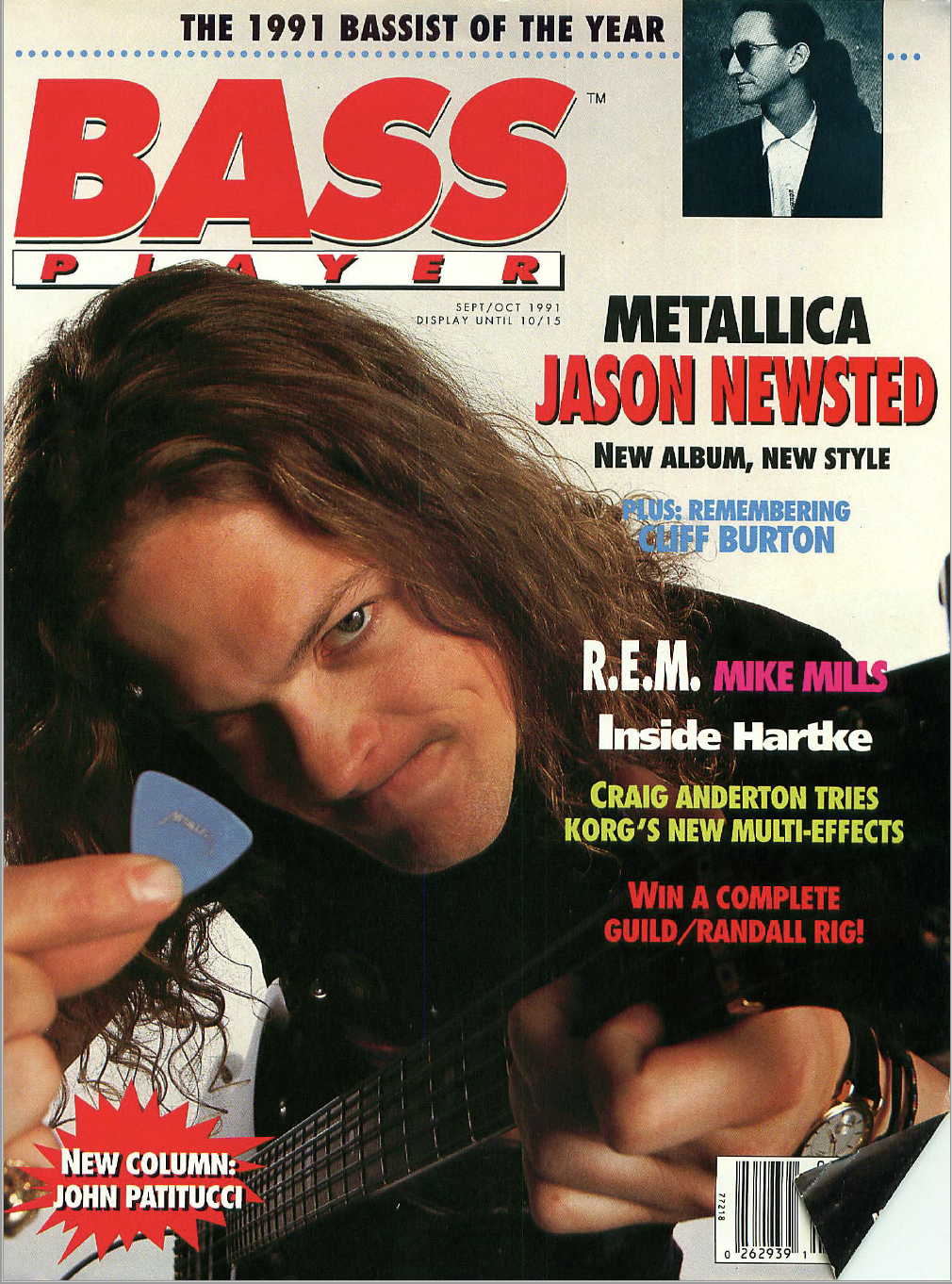
It is 1991. For the last 11 years, four regular guys from Athens, Georgia, have been pumping out rough-edged songs with honest, earthy lyrics; after 14 albums, endless touring, and a steady rise in popularity, they're finally savoring success with the chart-topping Out Of Time.
Bassist Mike Mills is crucial to R.E.M's organic sound: in addition to laying down a smooth, melodic bottom, he writes, plays keyboards, and sings – and he's done so throughout the band's tortuous trip to the top.
Mills was steeped in music throughout his childhood in Macon, Georgia. His father, a dramatic tenor, had an impressive collection of jazz, classical, and opera records; his mother sang and played both piano and guitar. Mike took a natural interest in music and began toying with the piano early, seeking formal lessons at the age of 14. “I didn't get mired down in theory," he recalls. "I had a great teacher who encouraged me to walk up to the piano and just play."

Soon after he began his lessons, Mills first took notice of the electric bass. "The high school jazz band was playing at a pep rally, and every once in a while, the bass player hit a note that made the bleachers vibrate. I thought, ‘That's the thing to do.'"
A friend of his mother's had a Fender Precision, and Mike began tinkering on it. Before long he "was strapping on a Jazz bass for the school's jazz band, which he anchored for the next four years. Mike's low-end interest blossomed during his first year of high school: he took up tuba with the school symphony, and he also joined the marching band as a sousaphonist. Eventually, he convinced the director to let him play electric bass on the sideline during games.
Inspired, Mills corralled his buddy, drummer Bill Berry, and some others to form his first band, which lasted a few years. "After high school, Bill and I started to get pretty disgusted with music – we were getting inundated with southern boogie, and we were tired of it. So we dropped music altogether. I sold my equipment to a guy named Ian Copeland, who was running a booking agency. We got to know him, and he introduced us to some new music: the Ramones, Patti Smith, and the Damned. I thought: 'Shit, this is exciting,' so I bought my stuff back – at a profit!
"By the end of '78, Bill and I decided we were going nowhere in Macon. We had to leave, because if you don't get out of Macon early, you never get out. We figured the only way was to go to school, so we went to the University of Georgia at Athens in January."
In 1980, Mills and Berry met up with singer Michael Stipe and guitarist Peter Buck, and R.E.M. was born. "Our first jam was in February, in a church. Even though it was freezing, I really enjoyed what Michael and Peter were doing with the songs Bill and I brought, and it was clearly working. We decided to play only for fun and free beer, but it grew from there."
Throughout the years, Mills has never had trouble keeping the arrangements full-sounding, even when Buck is playing mandolin. "Peter does a lot of arpeggiated picking and light strumming, which leaves me room to play melodic bass. Matching time with the kick drum would put me to sleep, so I play melodies underneath the other melodies-kind of like the left hand of a piano."
Mills favors smooth, scalar lines – especially descending ones – and often emphasizes notes other than the root. The first two singles on the new album illustrate this well: on Shiny Happy People, over an F#m chord, Mills descends from F# and hangs on C#, the 5th; on Losing My Religion he spins out slow, minor scale climbs and chromatic descents.
“That's the kind of thing [Fleetwood Mac's] John McVie does. Sometimes when I'm having trouble coming up with a part, I'll think, 'What would McVie do here?' That's how I wrote the bass line to Losing My Religion." Mills lists James Jamerson and Paul McCartney as other influences, though he emphasizes that he's always been interested in music as a whole, not just the bass parts.
Mike still plays keyboards: on the tour promoting 1989's Green, R.E.M. enlisted the aid of Peter Holsapple (of the dB's) to play guitar and bass, which freed-up Mills to play piano and organ on some songs. He also sings backup and occasionally shares the lead vocal spotlight with Stipe.

"Playing and singing – that's one of the hardest things for me," Mike confesses. "I learn the bass line and send it into my subconscious, and then I concentrate on singing. unfortunately, if I then try to play it without singing, I can't do it at that point, the bassline is totally relegated to my subconscious, and I often can't remember it."
In the course of hundreds of live shows, Mills has developed an unusual left-hand technique. "I like to have a lot of motion, so I strum the bass like a guitar and mute the unused strings with my left hand. I never knew I did it until someone pointed it out."
He uses a pick – any large, heavy one – most of the time, plucks with his fingers on quieter songs, and also throws in an occasional pop.
"I do that for a percussive effect – like in Radio Song [Out Of Time] or at the beginning of Stand [Green] but I can't wear it out like some of those other guys can."
Mike runs his pre-CBS P-bass, with EMG pickups and Dean Markley medium roundwounds, through an Alembic preamp, a Furman parametric EQ, and a MESA/Boogie 400 head, with two 2x15 cabinets. In R.E.M.'s acoustic shows, Mills plays either keyboards (with Berry on bass) or a Guild B-50 acoustic bass guitar.
What's the secret to R.E.M.'s slow-but-sure rise to fame? "It's a combination of hard work, chemistry, and luck," says Mike. "We've developed a high level of intuition –that's what separates a band from a group of musicians. We were actually lucky not to hit big right away: if this had happened when I was 22, I'd probably be dead now. You have to learn how to handle success."
For more R.E.M. history, info on member's current projects etc, visit their website.







